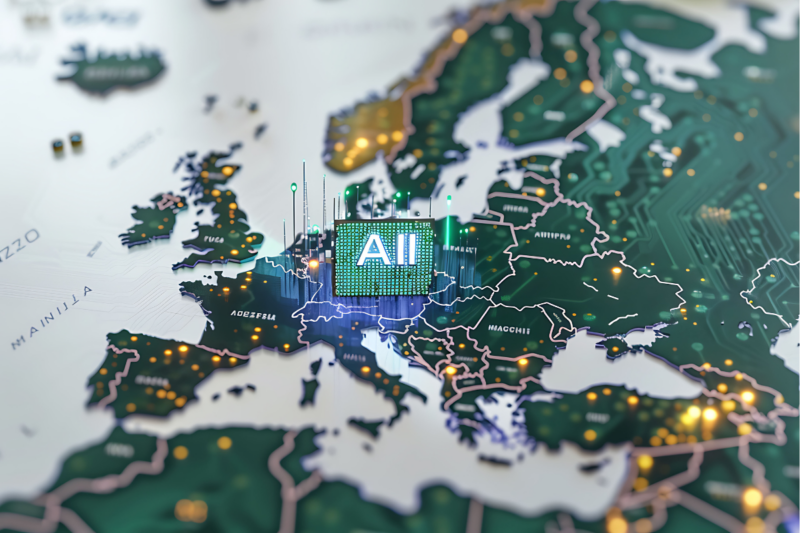Europe is at a crucial crossroads where it must reconcile the protection of its citizens’ rights with technological innovation especially in the field of artificial intelligence (AI). Aligned AI and data governance is essential for guarantee an ethical and prosperous future while ensuring strict regulation of personal data.
How can Europe become a leader in digital sovereignty? What challenges and opportunities lie ahead? Dive into this article to discover how Europe can turn these challenges into assets!
Europe and the AI challenge: a delicate balance
Europe is at a crucial crossroads where it must reconcile the protection of citizens’ rights with the technological rise of artificial intelligence. Current regulations, such as the RGPD, the AI Act and the Data Governance Act, pose solid foundations for this governance. However, they need to be fine-tuned to ensure that they can be applied effectively and understood by all.
Following the G7 meeting, the European data protection authorities stressed that the importance of better AI governance. Greater coordination between regulators is essential to avoid regulatory fragmentation and maximize the benefits of these technologies.
The European Union took a major step Wednesday toward setting rules – the first in the world – on how companies can use artificial intelligence https://t.co/H5qLrqByxZ pic.twitter.com/6f184erC0f
– CNN (@CNN) June 15, 2023
Aligning AI and data governance
Artificial intelligence relies on the massive exploitation of data. This makes strict regulation essential. Neutral trusted third parties play a crucial role in guaranteeing transparency and data protection. This approach is supported by the European authorities, who are calling for reinforced governance.
To avoid regulatory fragmentation, close coordination between the various regulators is necessary. This would strengthen data protection while stimulating innovation. Such a synergy would ensure that emerging technologies are developed in a way that is ethical and beneficial to all.
Raising public awareness: understanding and managing data
Making citizens aware of how their data is used is essential so that they can navigate the risks and opportunities of AI. Although the RGPD and the AI Act require organizations to inform users, the concrete means for effective control remain insufficient. Citizens often encounter complex processes to exercise their rights, which limits the effectiveness of the laws.
The Data Governance Act proposes data intermediaries to ensure transparency, but their implementation remains unclear. Greater coordination between regulators is needed to ensure consistent and accessible governance, giving citizens real control over their data.


